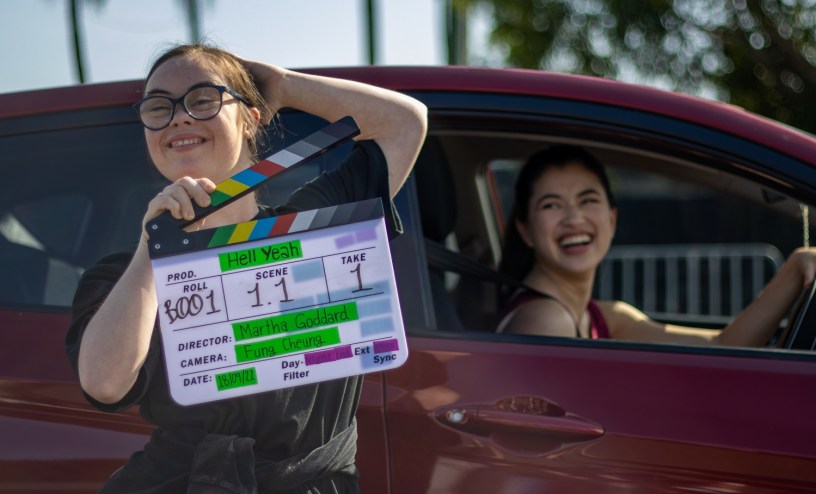Bus Stop Films has again expanded its Accessible Film Studies Program, extending its partnership with Griffith University and Griffith Film School to include classes at the institution’s Gold Coast campus.
The program, which offers young adults with intellectual disability or autism a film school experience, was made available in Brisbane via Griffith Film School in 2020 and has since launched in Melbourne, the Blue Mountains, Perth, Launceston, and Coffs Harbour.
The class works together with industry professionals to create a short film that’s submitted to film festivals around the world and potentially broadcast on TV. Participants learn all aspects of the filmmaking process including script development, casting, sound, lighting, and camera techniques as well as production design and costuming.
Films made through Bus Stop’s Queensland program include Sunshine, We’ll Always Have Dance, and Joie, which have screened at festivals around the world, while the 2022 program film Hell Yeah will shortly premiere at Brisbane International Film Festival.
Bus Stop CEO Tracey Corbin-Matchett said the organisation was pleased to grow its Queensland footprint with the support of Griffith.
“With the Gold Coast being such a hub of production, we look forward to connecting our participants into the region’s active screen industry,” she said.
Griffith Film School associate professor and LiveLab creative director Richard Fabb said the institution’s partnership with Bus Stop Films added “significant value” to the film school experience of both the program participants and the students.
“I am excited by the opportunity to extend the partnership to our Gold Coast campus and what this means for the university’s ongoing commitment to inclusion and collaboration through the arts,” he said.
Bus Stop’s Accessible Film Studies Program is open to people aged over 17 living with mild to moderate intellectual disability or autism. The 40-week rolling program will be delivered on Saturday afternoons from February to December next year.
Interested participants are invited to attend free taster workshops in the coming months so they can get a feel for the program and the classroom space. Find out more information here.


